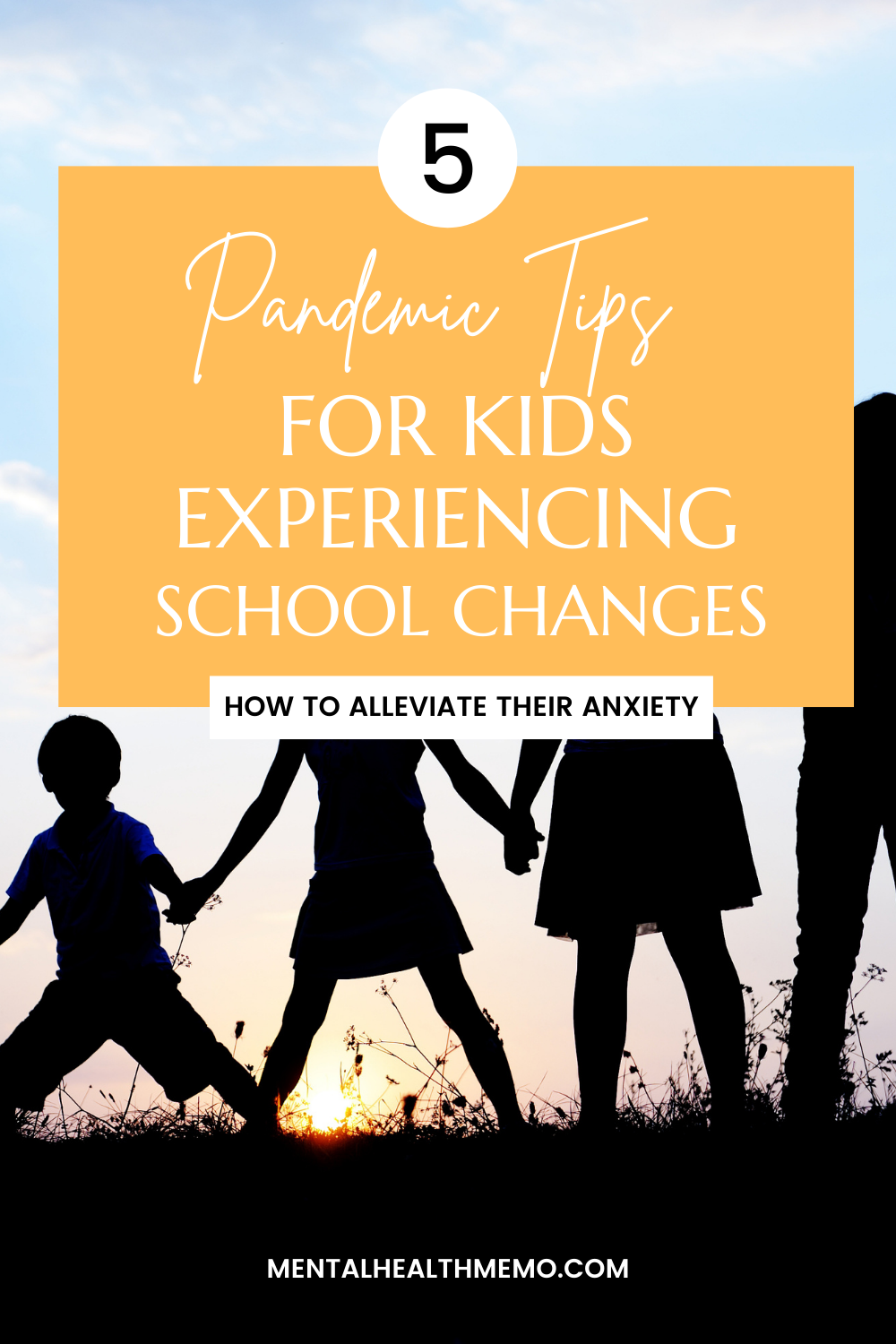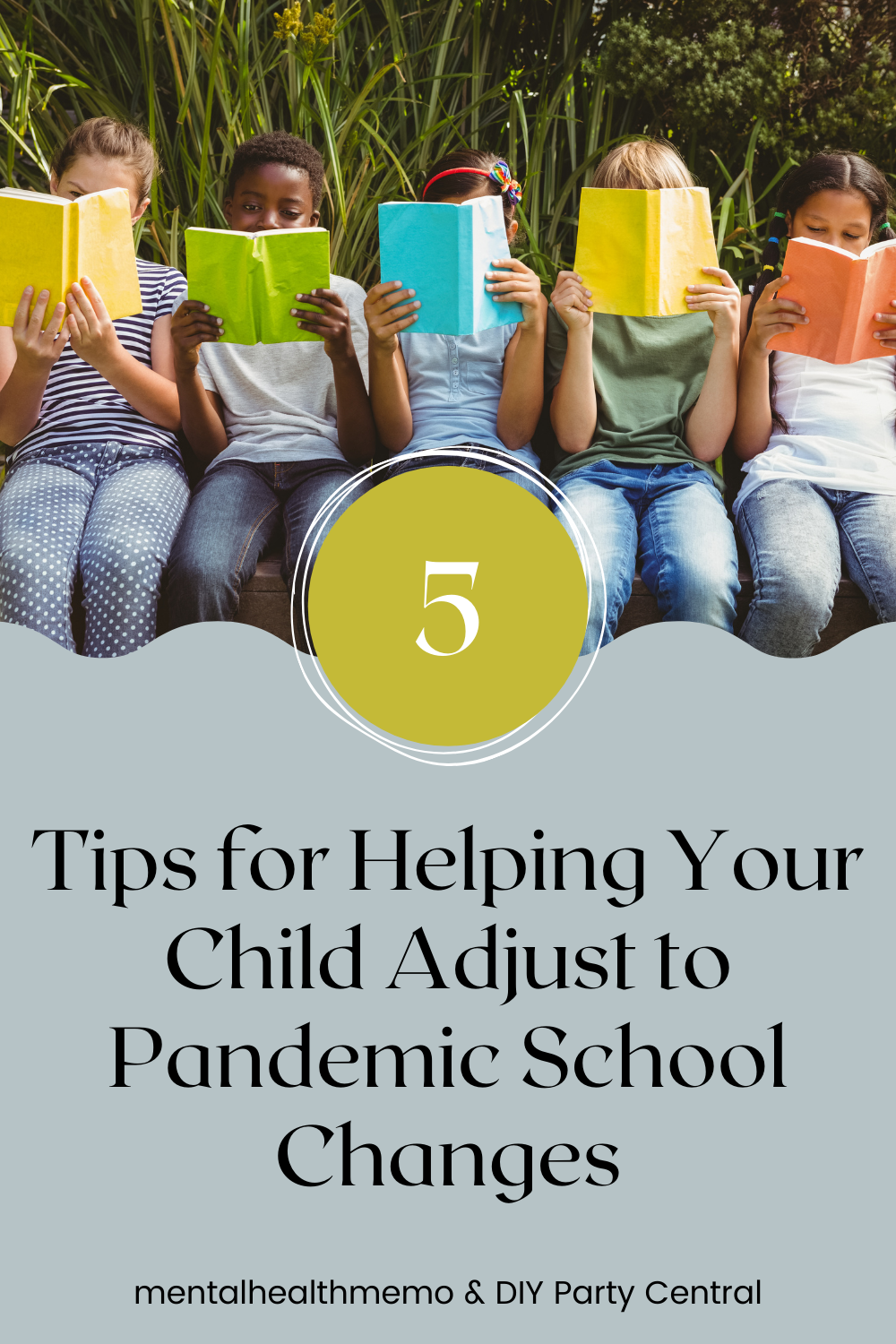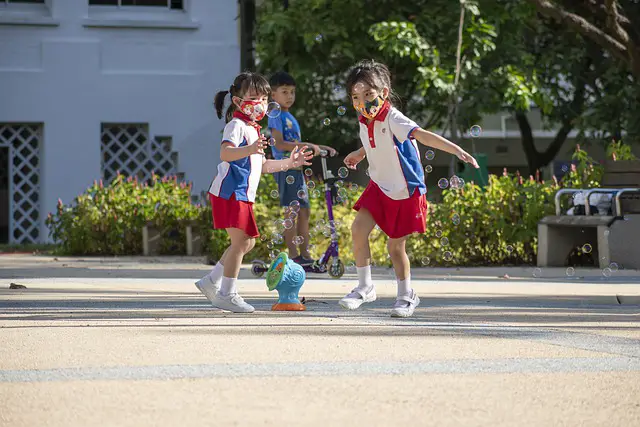The mental health memo of the day is: the pandemic has been hard not just for adults but for kids too, especially when it comes to school. Here’s how you can help children cope with pandemic school changes!
Another day, another exciting and insightful guest post! Today we’ll have Flick Frankish sharing her top 5 tips for how to best support kids during the pandemic and the changes they’re experiencing (and likely will continue to experience for a while longer). She based this on her experience with her lovely daughter Cassie who struggled quite a bit with the everchanging circumstances of attending school during a pandemic.
I’m so happy to have had Flick write about this as I’m not a parent myself so she had brought an angle to children’s mental health during the pandemic that I otherwise would not have been able to speak to on this blog.
So without further ado, let’s get into the tips!
Bio:

Flick Frankish lives in Sydney with her husband and three kids (Cassandra, 5, Vivienne, 3, and Elliot, 2). After studying journalism and digital media, she traveled and lived in London for two years as a nanny. From here, she naturally fell into the online world – and hasn’t left since! Her latest endeavor is DIY Party Central for all your party planning needs.
You can find her website here
Her Facebook page here
And her Instagram here
Make sure to give her a follow for some amazing party-related content (that I will definitely be utilizing at my next pandemic-free birthday)!
5 Tips to Help Children Cope with Pandemic School Changes
My daughter Cassie started school this year. It was a huge deal for us. Cassie is the oldest of three, so this was a first for all of us. Throw a pandemic into the mix, and we were a bundle of nerves all around. I wish I could say it was all smooth sailing for us, but that couldn’t be further from the truth.
Cassie’s First Day
Cassie’s first day came and went without a hitch. We were lucky enough that the pandemic rules had relaxed to allow us to walk onto the school grounds with our kids to say goodbye. It made all the difference. I was able to walk Cassie up to her classroom, where she met friends she had already made and ran off to play!
That was it.
I’m not going to lie, I think I almost cried.
My little girl was growing up too fast and it was clear she didn’t need me anymore. We were off to a flying start.
Then things changed.
More restrictions were put into place, and parents were no longer allowed onto the school grounds. The worst part. I didn’t even realize. I had missed the school notification.
My heart sank, and Cassie caught onto that fear of mine. Cue the tears.
Not just regular tears, but heart-throbbing screeches. It took two teachers to pry her off me and get her into school. I can tell you now that I left crying that day as well.
Coping With Changes
But it didn’t stop. Cassie didn’t understand why one day I was allowed on to school grounds, and then the next I wasn’t.
She’s not a fan of change under the best of circumstances, but when it creeps up on her and just doesn’t seem logical, she struggles even more (understandably).
Day after day and week after week she screamed at drop-off. Some days she tried to run and chase me out of the school. The teachers would see her coming and would help pry her off me.
It was every parent’s worst nightmare, and I had no idea how to explain the concept of a global pandemic to a five-year-old.
I’m not sure that you can!
Her anxiety grew and grew from here. She was coming home in tears when the teacher singled her out in class. She wasn’t sleeping at night. Everything just spiraled.
Thankfully, we had some suggestions up our sleeve to help her through.

“Our top 5 tips for dealing with children’s pandemic changes”:
1. Stay up to date
There was nothing worse than rocking up to school that day and realizing that all the restrictions had changed and we were no longer allowed on the grounds. I had no time to prepare Cassie at all. Not only this, but she caught onto my own panic. It didn’t help matters.
Sign up for the school newsletter. If you can, join a parent group with other class parents in it. This way, if there’s any news or anything changes suddenly, you will be made aware of it.
2. Debrief each night
Kids are great at holding their feelings in. Nighttime is often when upsets of the day come out. They relax, they close their eyes and try to sleep, and everything piles on top of them.
Before bed, help your child talk through their feelings.
We ask four simple questions:
- What was something good that happened today?
- What was something bad that happened today?
- What was something kind you did?
- What was something not-so-kind you could work on?
Our aim is to encourage the idea of ‘being nice’ to everyone, while also working through Cassie’s own feelings of how the day went.
They do say you are your child’s safety net. They are going to act differently for you than anyone outside the family.
Let your child know that you’re happy to be their safety net and encourage them to open up.
With everything going on around the world that they don’t understand, you are the person who can answer those big questions for them.

3. Prepare for change
If changes are made, it’s important to prepare your child for them.
Don’t react in the moment. I made that mistake and it completely played on Cassie’s own reaction.
Take a minute to process the changes and work out how you’re going to explain it to your child.
One big change from preschool to school was that school was much stricter about COVID symptoms. If children have a runny nose (which mine do a lot), they have to stay home and get a negative test before they can return.
Cassie struggled with this. She didn’t understand the change. Plus, she loves school and wasn’t a fan of being sent home when she felt 100% fine.
Instead of telling her it’s simply a rule and she has to follow it, I tried to put it into her terms.
I told her: preschool has 30 kids. If one child gets sick, they might pass it onto those 30 kids. At school, there are 600 kids. If one child gets sick, they might pass it on to all 600 kids. That’s why the school has to be more careful. If that many kids got sick, they would have to close the school and no one could learn for a long time.
This made her understand the change – without being scared about the virus. It was a happy medium for us.
4. Work with the teachers and staff
You can’t do it alone.
When you send your child off to school, you’re leaving them in the hands of capable staff for half the day. It’s important that you have open communication with them.
I told Cassie’s teacher about her anxiety incidence when she came home from school the day she was told off. The teacher was shocked, as she said Cassie showed no signs of being upset in the moment.
What did I say – kids save it for us!
But, we made a plan moving forward to make sure this didn’t happen again. To help Cassie feel more comfortable and to ease her anxiety at school.
5. Find coping mechanisms
Anxiety doesn’t just go away on its own. And with things changing each and every day thanks to the pandemic, it’s important that your child has their own coping mechanisms in place.
Here are some of the things we used with Cassie:
- ‘The Invisible String’ by Patrice Karst. If you haven’t heard of this book, go out and buy it now. It’s so beautifully written and just perfect for a child with anxiety who is worried about leaving you. Cassie talks about her invisible string every day and we share how often we pull on it and give each other a hug.
- Support from teachers: we organized for a teacher to come out each day and walk Cassie in. She picked the teacher – it was someone with who she felt comfortable. Giving her a little control over the situation and a say in what happened next was just what she needed. It made all the difference in the world.
- Keychains: we went out and picked a few special keychains, and I got myself matching ones for back home. It was a way of creating a connection with Cassie, even when I wasn’t able to be in the room with her.
- Bribery: yes, if it works for your child, then don’t be afraid to use it! The right incentive might be just what your child needs to get them over the edge – and there’s nothing wrong with that. If they’re feeling too anxious, then the bribery won’t work anyway.
Coping With Anxiety
Some kids are simply more anxious than others, and it’s important to be aware of that. Just because other kids are handling the changes, doesn’t mean your child will. And it doesn’t mean you should expect them to either.
Let them guide the way and listen to them. Change is hard. We struggle with it as adults, even when we understand the change. Imagine being scared and fearful of the change and feeling like you have no control over it. It’s no easy task for little minds.
Cassie is now thriving at school. Last week, she stopped me before we even reached school, hugged me goodbye, and walked in on her own. That’s not to say we don’t have hiccups along the way. She had Easter Hat Parade a few months ago, and couldn’t understand why only one adult could come and see her.
I know with the constantly changing face of the pandemic, more of these situations are going to arise along the way. But for now, we feel equipped with the right ways to help Cassie through each of these scenarios.
Who knows what the world is going to look like in another year or two. Everything is changing daily. The best thing we can do is let our kids guide us and respond to their thoughts and feelings along the way. We’re doing our best through all of this. And they’re doing their best as well.

Summary
Thanks again to Flick for her amazing tips and insight. What are some of your best tips for helping children out when there are school changes due to the pandemic? These could be things you’ve discovered as a parent, or maybe you work with children and have some recommendations. Let us know in the comments below!
All my love,
T


Thanks for the great article!